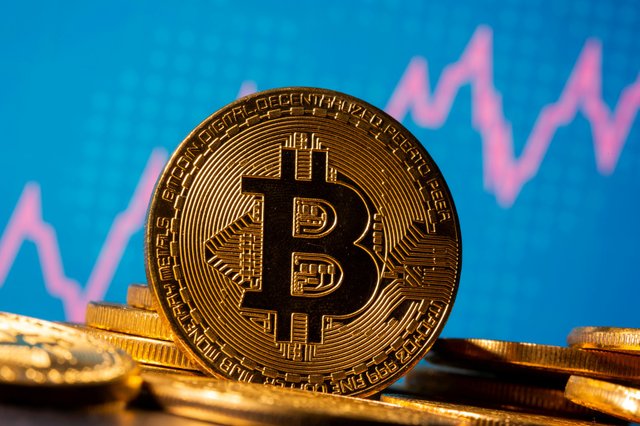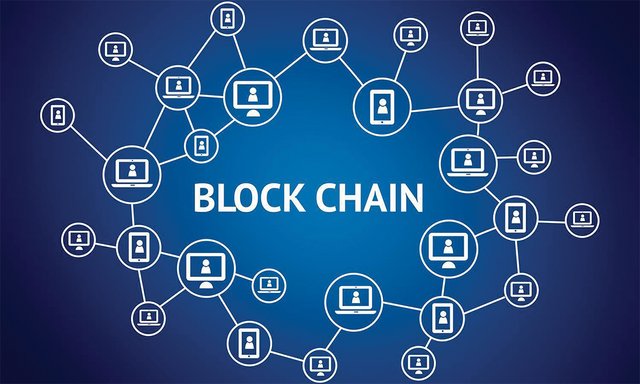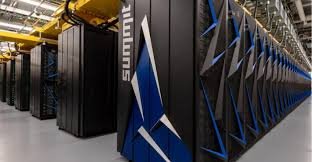Blockchain Technology

Abstract:
Discussing the topics of digital currencies and their history. What is blockchain technology and its history, what advantages could blockchain technology offer for the average person? The uses cases for a smart contract. How will Blockchain technology be integrated into our ever-increasing digital world and the new age of the Internet of things (IoT).
Introduction:
Decentralized Digital Currencies:
The concept of a digital currency has been in development since the 1980s. One of the first examples and widely used digital currency of its kind was called “E-gold” launched in 1996 by Dr Douglas Jackson it aimed to digitalize the value of gold which could then be sent worldwide used as a method of payment via the early internet age. Within a 10 year period, five million people had open active accounts with E-gold and at its peak in 2006 E-gold was processing more than US$2 billion. However, E-gold suffered from a major fault the first being that it was governed by a centralized entity (Gold & Silver Reserve Inc) that oversaw the system and that it was using Microsoft Windows as its operating systems which meant that was open to hacking and phishing attacks.

Bitcoin:
Following the global financial crisis (GFC) in 2007 there was now a new push towards developing a truly decentralized digital currency one that was open source, capped at a finite limit and operated on a secure network other than Windows to keep digital hackers out.
Bitcoin is crowned as the world’s first cryptocurrency. It came to the public’s attention in 2009 when a person referring to themselves as “Satoshi Nakamoto” registered an internet domain under the URL name of bitcoin.org. Within the webpage was a link to a white paper titled “Bitcoin: A Peer-to-Peer Electronic Cash System” where the use of Bitcoin was first proposed. The official Bitcoin whitepaper is still available to be read on the webpage which is highly recommended.

What is blockchain technology:
What really made Bitcoin truly revolutionary was not the Bitcoin itself but the Blockchain technology in which Bitcoin moved on. A Blockchain is a method of permanently recording digital information on to open-source data blocks, much like an open-source ledger meaning that anyone on the network can view the data entries in near real-time.
Before any new digital data is recorded to a block a number of nodes on the network must cross-reference the newly recorded data. These nodes are in fact other computers on the network located all over the world that are used to validate the Blockchain. The Nodes are surveying every single new data entry that takes place on the Blockchain. If at any one time these nodes detect that there is a discrepancy within a data entry (one nodes data entry is not matching the other nodes data entry) then the Node will not allow the data entry to be recorded. An example would be a digital voting system whereby the nodes must all vote in the same direction and all concur on the same data that they have received. Once a block is filled with data that block is then timestamped and "Chained" to another block using cryptography mathematics hence it’s given the name “Blockchain”. This method of security makes a Blockchain very difficult to hack, delete or edit the data once it has been inputted into a block and it is a fact that to this present day the Bitcoin Blockchain has never been hacked due to the enormous computing power and cost that it would take for an external force to hack every single node on the network simultaneously.
Advantages of blockchain technology to the average person:
The Internet of things (IoT) is a broad word to describe the new digitalised world in which we are entering whereby smart houses, cars, drones and computers are all fitted with sensors accumulating data, even your smartwatch is collecting external data right now. This data will then be exchanged with other devices and systems over the world. As this data expands at an exponential rate over time there is going to be a greater emphasis to document and store this data in a secure way.
Forbes magazine stated in a 2020 article that Blockchain technology was predicted as one of its defining technologies in the next decade describing it as a super-secure method of storing, authenticating, and protecting digital data.
Voting:
Voting by ticking a piece of paper with a pencil currently feels absurd knowing that anybody can easily manipulate the vote with the potential of changing a government in their favour by rubbing out the pencil tick with an eraser. Digitally voting on a Blockchain will become secure and truly democratic due to its transparency and security. It will be nearly impossible to tamper or rig an election restoring public trust and faith towards a government. It could also have huge positive implications for 3rd world unstable countries where a dictatorship has been in power for far too long.

Fake News:
Over the years there has been an explosion of “Fake news” whereby some of this news completely violates common knowledge i.e. The Earth is flat?? Fake news could be stamped out and only trusted resources from respected media outlets could be documented on to a Blockchain freely available to the public to review.

Blockchain technology:
Building and operating a supercomputer is extremely expensive. As of June 2020, the Fugaku computer located in Japan holds the title of the world’s fastest computer. Its construction costs topped US$1 billion and it has ongoing operating costs. Supercomputers have many uses cases such as weather prediction, climate research, and medical drug research. Currently, computer scientists are suggesting that idle desktop computers could be put to work by processing small packets of scientific data effectively renting out the idle computers CPU then allowing the computers to send back their scientific results via a Blockchain. This method could lead to greater scientific breakthroughs and would reduce the need to build and run yet more expensive supercomputers.

Self-driving cars:
Autonomous vehicles (AV) are already available although they are still in their infancy and must oblige by strict road rule conditions, their use cases make perfect economic sense. An autonomous truck for example has the ability to travel long distances without having to stop for rest breaks and would only have to refuel. Transport costs and time could be reduced dramatically. Road accidents claim millions of injuries and deaths every year with huge economic implications. Studies have found that about 90% of these accidents can be contributed to human error. However, the underlining software of an autonomous vehicle has been addressed as a potential threat posed by computer hackers which have already been demonstrated in test conditions whereby a Tesla vehicle in autonomous mode was deliberately hacked, and its guidance system was overtaken by a 3rd party. A nightmare scenario would be a computer hacker taking control over a major transport network to their advantage. Now major car companies are looking towards Blockchain technology to stop this from ever happening by verifying every software update which the autonomous vehicle receives therefore preventing any modified or malicious software which hackers could implant into the software update.

Donating money to charities:
Currently when fiat currencies (the USD) are sent to charities particularly overseas a lot of the money will be lost on international transaction fees. Unfortunately, sometimes this money does not go directly to the intended charity and ends up in the hands of corrupt governments or organized crime. Blockchain technology can be used to send a synthetic version of a “stable coin” most likely pegged to the USD which is running on a Blockchain. Using this method, it is now guaranteed that the funds will be sent to their intended charity and at a lower transaction fee.

Buying real estate:
Looking back at the American housing bubble that led to the global financial crisis (GFC) it's easy to see how greed and a lack of transparency within financial industries had catastrophic consequences. Blockchain technology provides the public with transparency as to where the transactions are going and builds added trust.

Smart contracts on a Blockchain:
A smart contract is a digital electronic protocol running on a Blockchain. It must be noted that the Bitcoin Blockchain is not capable of running a smart contract as its blockchain protocol was never designed in that way. Smart contracts are effectively taking Blockchain technology to the next level whereby it is used to execute a set agreement that will execute when certain parameters within the agreement are met. One of the Blockchains that is capable of supporting smart contracts is called “Ethereum” founded by Vitalik Buterin in 2015 in which its native token is called ETH. Smart contracts could be used when purchasing expensive real-world assets such as a house or a car, they use a peer to peer purchasing method meaning that there is no need for the involvement of a bank, real estate or lawyer (no 3rd party). In the simplest of terms, a smart contract agreement could look like the example below.
“Person A wants to buy a house from Person B. When Person A pays Person B the sum of 300 ETH as the agreed payment then Person A will receive ownership of the house”.
Once this smart contract has been executed it cannot be reversed and Person B will receive their 300 ETH as payment for the house. Using a smart contract both parties have saved money by not having to pay real estate commission fees or lawyer fees.
Disadvantages of Blockchain technology:
Blockchain technology is known for its security however it is theoretically possible to hack a blockchain whereby a hacker needs to gain more than 51% of the blockchain nodes on the network (the computers that are constantly validating the blockchain). This has already occurred to smaller blockchains in the past however the more established Blockchains such as Bitcoin's and Ethereum's using this hacking method is very difficult due to the sheer number of nodes already operating on those networks.
Discussion:
By reviewing the current data, the Internet of things (IoT) is predicted to be a $1.1 trillion industry in the USA alone by 2022. Data has been increasing at an exponential rate and with the introduction of new infrastructure such as 5g towers, this influx of new data is not going to slow down. It is predicted that Blockchain technology will play a major role in the integration of the IoT by guarding against hackers, gaining public trust through its transparency, the security of documenting this digital data and its ability to move the data worldwide. Now both governments and private companies are looking at the potential benefits that Blockchain technology could offer them. It has been noted that it is possible to hack a Blockchain, but this would mean gaining the power of more than 51% of the blockchain nodes which requires extreme computer processing power and it is costly. Blockchain technology is still evolving and still, public education is needed before the majority of the public understand it. With the few known disadvantages of Blockchain technology, it is obvious that the positives are currently far outweighing the negatives.
Conclusion:
Bitcoin was the first-ever cryptocurrency made available in 2009 acting as a proof of concept that Blockchain technology works. The Bitcoin Blockchain is limited in its use cases and more time is need for more advanced Blockchains to become available.
Data is growing at an exponential rate as we enter the information age and now there exists a need to document and process this new data in a secure and decentralized method.
Blockchain technology is appearing as a vital link to integrate the Internet of things (IoT) by offering a method of security and transparency.
Robert Lavington